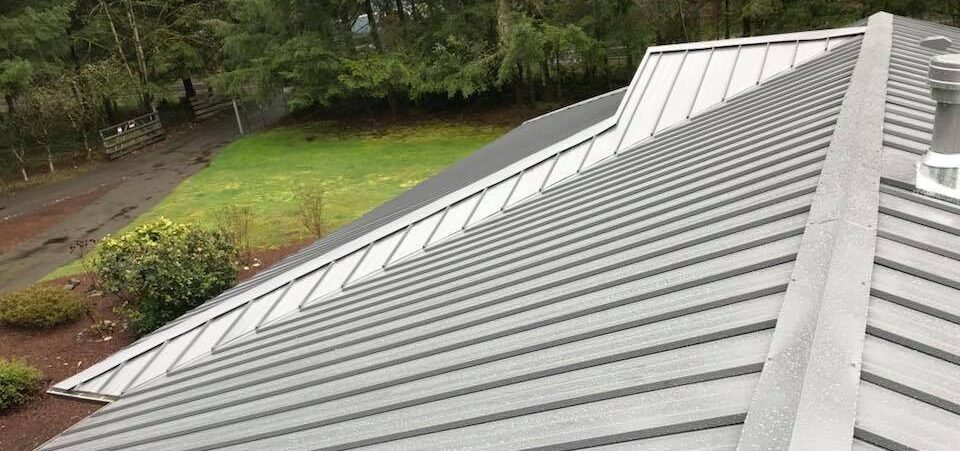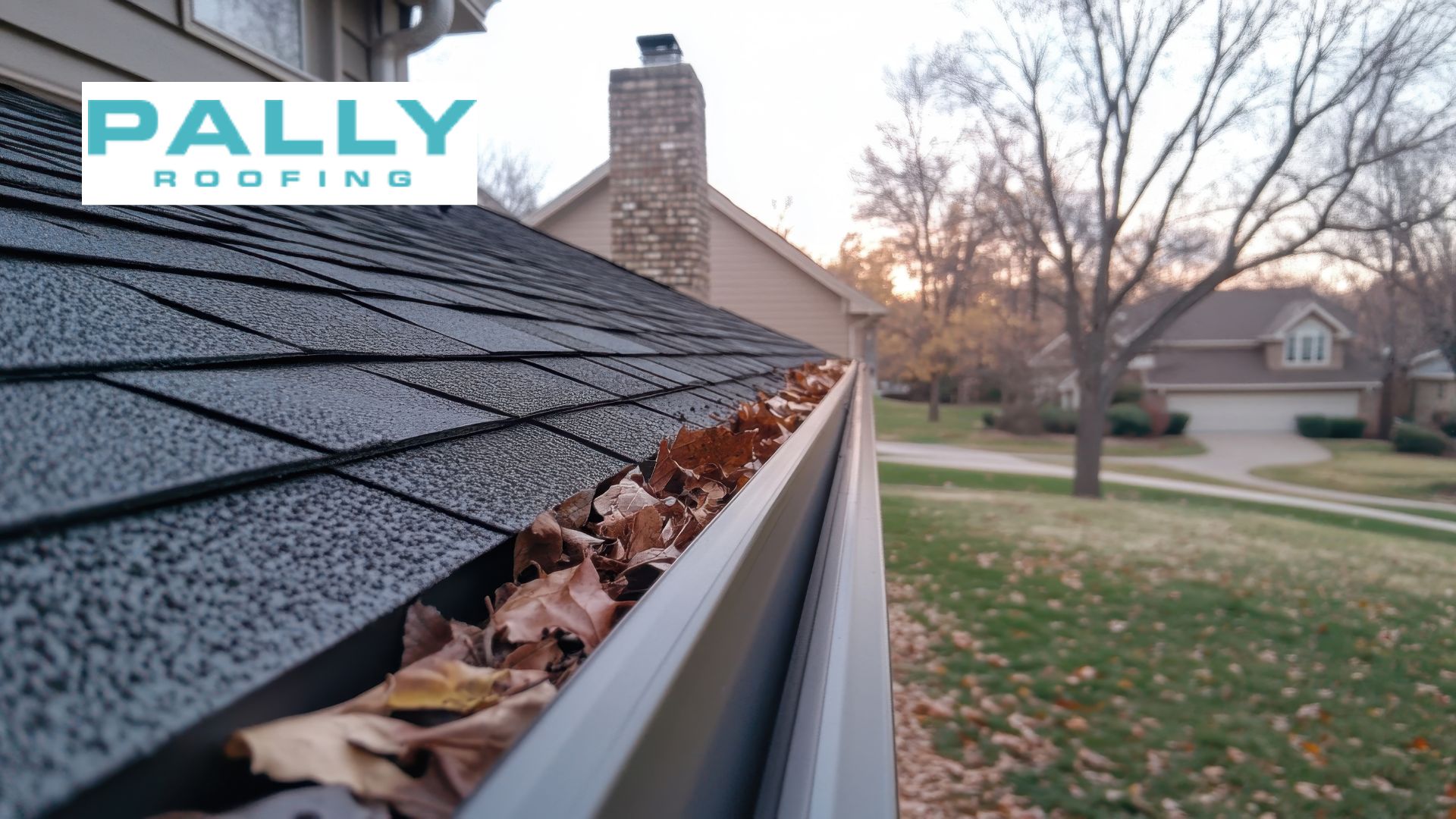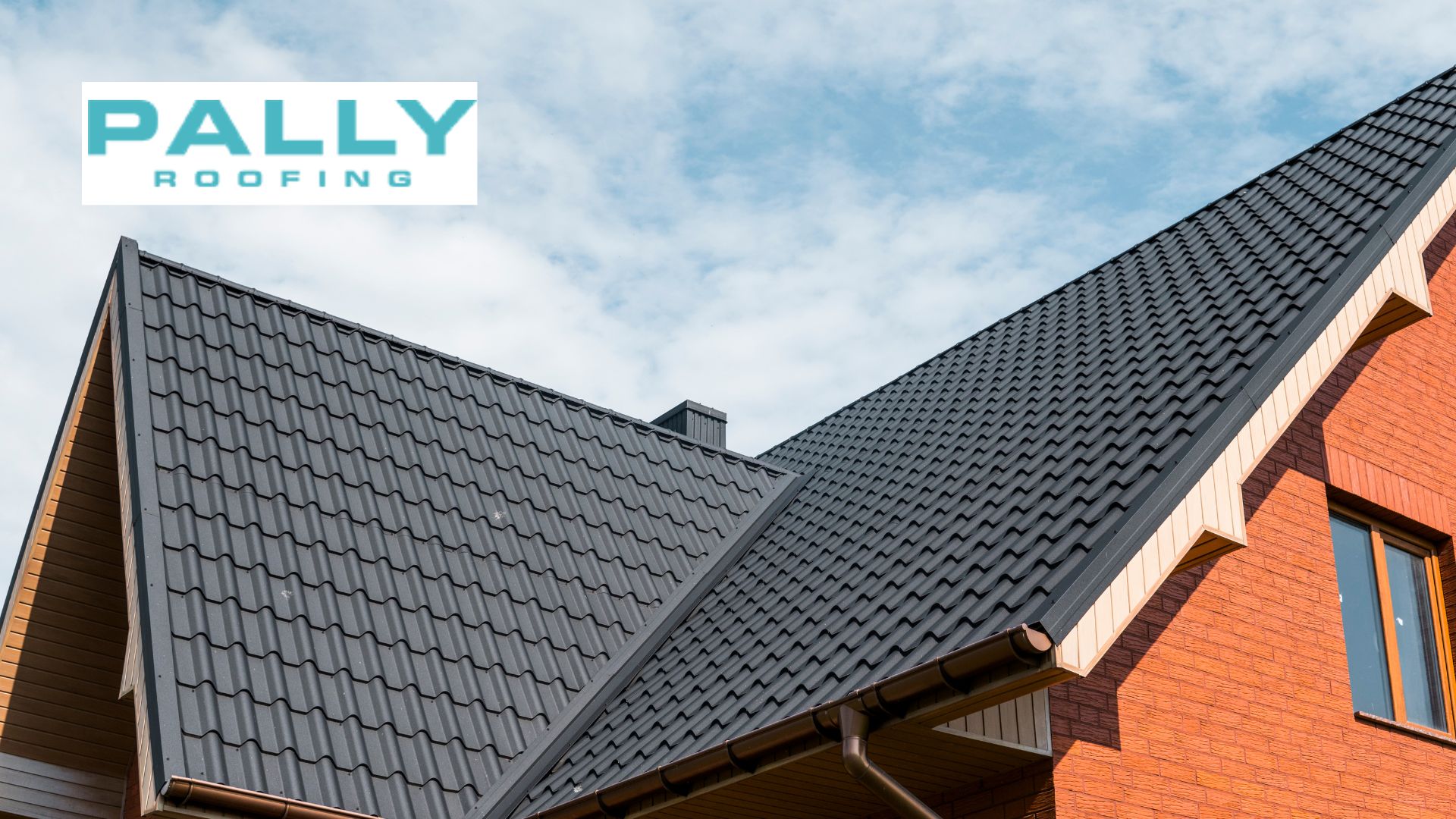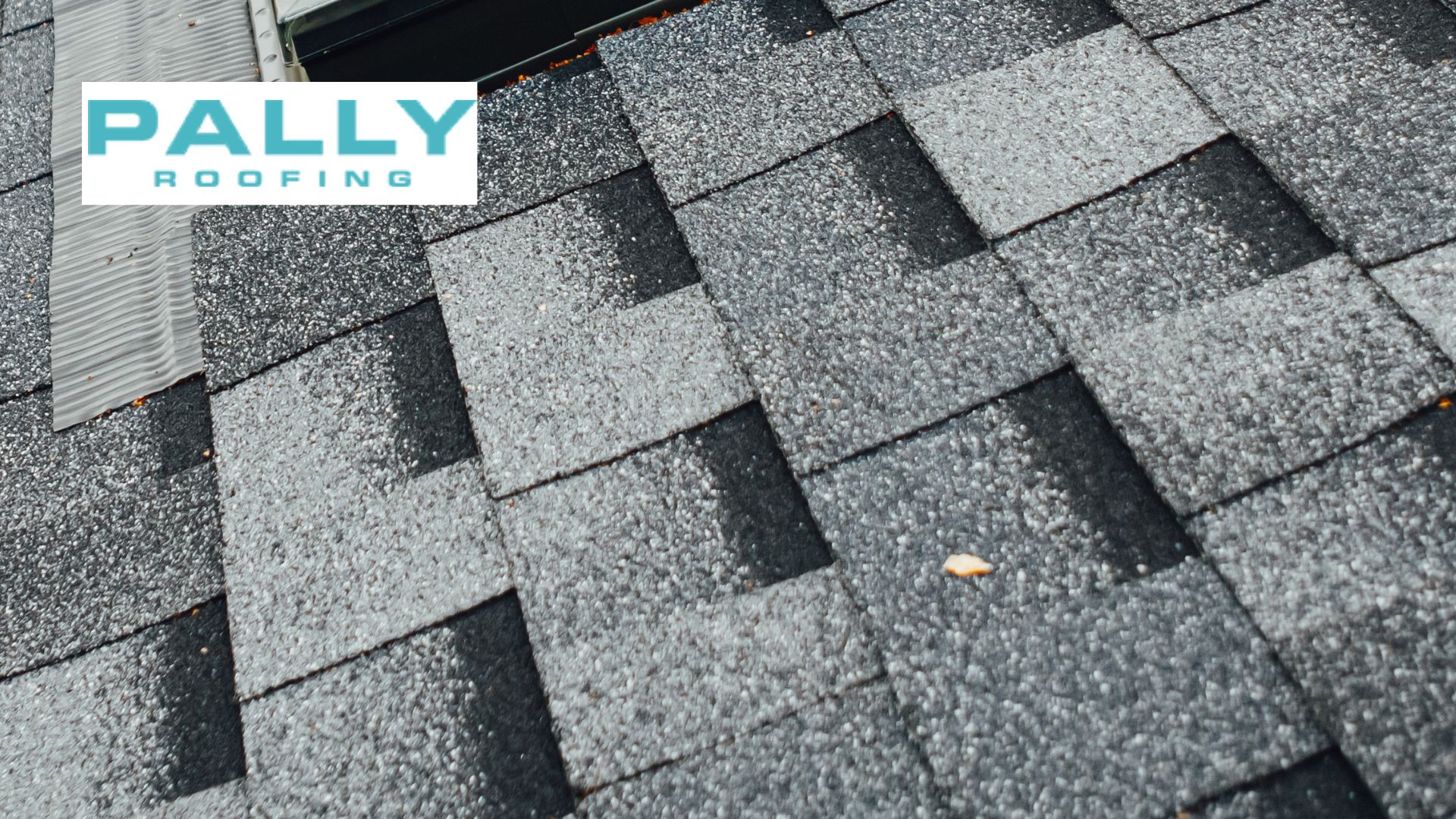Last updated on March 26th, 2024 at 04:15 am
Metal roofing is a premier choice for homeowners seeking durability and longevity in their roofing systems. Renowned for its exceptional resilience against the elements, metal roofs offer unparalleled protection and peace of mind. At Pally Roofing, we’ve witnessed firsthand the transformative benefits of metal roofing to homes across Ohio.
Table of Contents
As your trusted roofing solution, Pally Roofing takes pride in offering expert metal roofing installation services that elevate the longevity and performance of your home’s roof. With a reputation for unmatched durability, metal roofing systems provide decades of reliable service, making them a wise investment for homeowners seeking long-term value.
Overview of Metal Roofing
Metal roofing encompasses various types, each with unique benefits. Standing seam, metal tile, corrugated, and metal shingles are the most prevalent. Standing seam roofs feature raised interlocking seams, while metal tile replicates traditional aesthetics with added metal durability. Meanwhile, corrugated metal is renowned for its cost-effectiveness and strength.
Metal roofs boast resilience against harsh weather, including hail and windstorms. Their reflective nature enhances energy efficiency by deflecting solar heat, reducing cooling expenses in warmer climates. Additionally, they demand minimal upkeep, are eco-friendly due to recyclability, and offer a sleek, modern appearance.
Materials for metal roofs include steel, aluminum, copper, and zinc. Steel and aluminum are favored for affordability and resilience, while copper provides a unique aesthetic and lasting durability. Zinc, a premium choice, is valued for its self-healing traits and long lifespan. Evaluating each material’s pros and cons is crucial for selecting the optimal solution tailored to specific requirements.
Factors Affecting Metal Roof Longevity
Material: The choice of metal roofing material significantly influences a roof’s lifespan. Common materials include steel, aluminum, copper, and zinc. Steel and aluminum are known for their durability and affordability, with lifespans ranging from 30 to 50 years. Copper, though pricier, offers a distinctive aesthetic and can last over 100 years. Zinc, prized for its self-healing properties, can endure for 50 to 100 years.
Installation Quality: Proper installation is paramount for ensuring the longevity of a metal roof. Skilled craftsmanship and attention to detail are essential to prevent leaks, improper sealing, and premature deterioration.
Climate: Environmental factors play a significant role in determining the lifespan of a metal roof. Exposure to extreme weather conditions, such as hail, high winds, and heavy rain, can accelerate wear and tear. Additionally, prolonged exposure to UV rays can cause fading and degradation of the roofing material.
Maintenance: Regular maintenance is essential for prolonging the life of a metal roof. Inspections should be conducted periodically to identify and address any issues promptly. Cleaning debris from gutters and ensuring proper drainage can prevent water damage and corrosion.
When it comes to ensuring the longevity of your metal roof, trust Pally Roofing to deliver exceptional service and expertise. From material selection to installation and maintenance, we are committed to providing top-tier solutions tailored to your roofing needs.
How Long Does a Metal Roof Last?
Metal roofs are renowned for their exceptional durability and longevity, making them popular among homeowners seeking a roofing solution that stands the test of time. The lifespan of a metal roof can vary depending on several factors, including the type of metal used, the quality of installation, and the local climate conditions.
Here, we provide a detailed examination of the lifespan of metal roofs based on different materials and a comparison of expected lifespans for various types of metal roofing systems.
Steel: Steel is one of the most common materials used in metal roofing due to its affordability and durability. A properly installed steel roof can last anywhere from 30 to 50 years, depending on factors such as coating quality and maintenance practices.
Aluminum: Aluminum is prized for its lightweight nature and resistance to corrosion, making it an excellent choice for coastal areas or regions with high humidity. Aluminum roofs typically have a lifespan of 40 to 60 years with proper maintenance.
Copper: Copper is a premium roofing material known for its timeless beauty and longevity. Copper roofs can last well over 100 years with minimal maintenance, making them a wise investment for homeowners looking for a roof that will last a lifetime.
Tin: Tin roofs, or terne roofs, are typically steel coated with lead and tin. While less common today, tin roofs can still be found on historic buildings and homes. Properly maintained tin roofs can last 50 to 70 years or more.
Advantages and Disadvantages of Metal Roofing vs. Other Roof Types
When considering roofing options, metal stands out among various materials available. While it boasts benefits like durability and longevity, it also presents drawbacks compared to alternatives. For instance, metal roofs, such as asphalt shingles, are pricier than some counterparts and may produce more noise during rainfall.
Despite this, they offer long-term savings through energy efficiency, reflecting sunlight to lower cooling costs. Moreover, metal roofs add a modern, industrial aesthetic to any structure. When selecting a roofing material, it’s crucial to assess the pros and cons of each to suit your budget and requirements.

Tips for Maximizing Your Metal Roof’s Lifespan – Maintenance and Repairs
Metal roofs are gaining popularity for their durability and aesthetics. However, proper maintenance and timely repairs are essential for longevity like any roofing system. Regular inspection and cleaning are essential to prevent debris buildup, which can lead to issues over time.
Additionally, promptly addressing signs of damage, such as rust or loose panels, ensures ongoing protection. By staying proactive with maintenance and repairs, homeowners can safeguard their investment and enjoy lasting performance from their metal roofs.
Metal roofs represent a wise long-term investment, offering superior protection and energy efficiency. While their durability is undeniable, their lifespan hinges on material quality, installation, and maintenance.
For those considering a metal roof, thorough research into different types and materials is vital. Finding a professional contractor specializing in installation ensures optimal performance. With the right combination of factors, a metal roof can provide reliable protection and enhance the aesthetic appeal of any property for years to come
Conclusion
In summary, the longevity of metal roofs is influenced by various factors, including the type of metal used, the quality of installation, climate conditions, and maintenance practices. While metal roofs offer exceptional durability and longevity, their lifespan can vary depending on these factors.
At Pally Roofing, we understand the importance of informed decision-making for homeowners considering metal roofing. Our team of experts is dedicated to providing comprehensive guidance and support throughout the roofing process, from material selection to installation and maintenance.
Contact us today to learn more about our metal roofing services and how we can help you make the best choice for your home. With Pally Roofing, you can rest assured that your roofing needs are in good hands.
Frequently Asked Questions!
How long does a tin roof last?
A tin roof, known as a terne roof, typically lasts 50 to 70 years with proper maintenance and care. Factors such as climate conditions and maintenance practices can influence its lifespan.
How long does a steel roof last?
Steel roofs are known for their durability and can last anywhere from 30 to 50 years, depending on the quality of materials, installation, and maintenance. Regular inspections and maintenance can maximize the lifespan of a steel roof.
How long does an aluminum roof last?
Aluminum roofs are lightweight and resistant to corrosion, offering a lifespan of approximately 40 to 60 years with proper maintenance. Regular cleaning and inspections can ensure the longevity of an aluminum roof.
How long should a metal roof last?
Generally, a well-maintained metal roof can last anywhere from 40 to 70 years, depending on the type of metal used, installation quality, and environmental factors. Regular maintenance and prompt repairs can help extend its lifespan.
How long does a corrugated metal roof last?
Corrugated metal roofs are known for their strength and durability, typically lasting around 30 to 50 years with proper maintenance. Factors such as the gauge of the metal and exposure to harsh weather conditions can affect its longevity.
How long do metal shingles last?
Metal shingles offer a lifespan of approximately 30 to 50 years, depending on the quality of materials and installation. Regular inspections and maintenance ensure that metal shingles remain in good condition for many years.
https://www.google.com/maps?cid=9867860538458984182
Author
-

With more than 16 years of hands-on experience, Phillip Schmucker is the knowledgeable owner of Pally Roofing. His dedication to superior roofing services has earned him a reputable place in the industry. Phillip also shares his extensive expertise through writing, providing readers with practical tips and professional advice on various roofing topics. Follow him on LinkedIn.
View all posts






